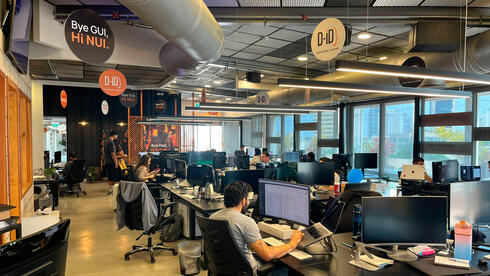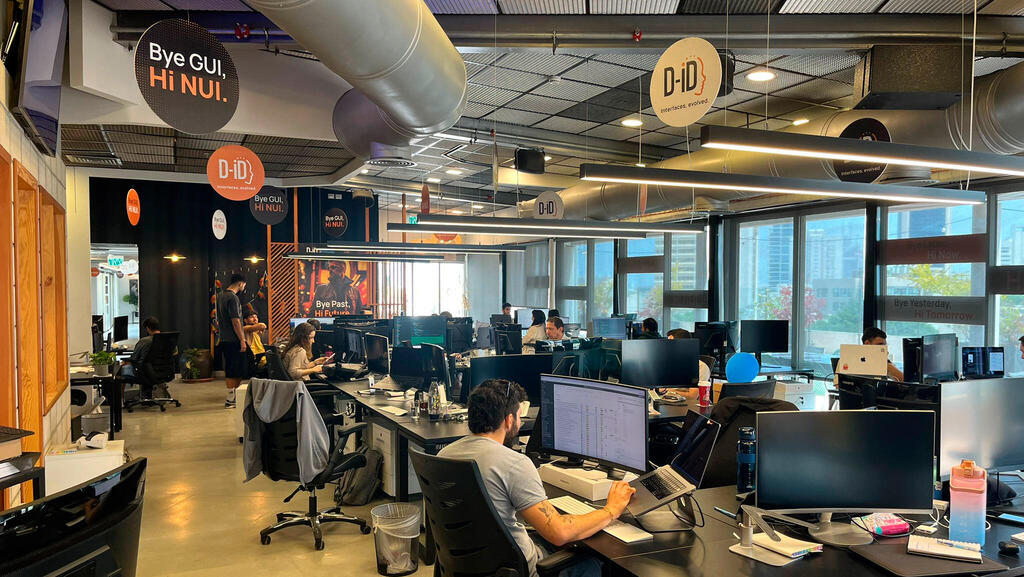Jobs
A whole new job market: Introducing AI professions | CTech

The giant technological leap made by artificial intelligence tools in the last two years has led to widespread fears and warnings about the potential loss of millions of jobs. A report prepared for the U.S. government warned that about 10% of U.S. workers could lose their jobs due to the introduction of AI tools.
However, alongside these fears, new opportunities are also emerging—innovative professions and roles that adopt AI tools in fields such as marketing, cybersecurity, health, and even manufacturing.
Organizations in Israel and around the world are already working to integrate advanced technologies into their products, work processes, and various activities. Companies are mobilizing personnel and preparing for the new era of artificial intelligence, where expert employees will be responsible for assimilating the technology into products, protecting against attacks, automating processes, and integrating creative AI tools into organizational procedures.
“The only stable thing in the job market, especially the technological one, is that it changes all the time. Anyone who doesn’t ask themselves how the AI revolution affects their job and fields of activity, adopt new tools, and take part in reinventing their field of activity will find themselves without a job,” says Avi Shanir, CEO of Elevation, which specializes in building internal and external skills academies to bridge employment gaps and promote occupational diversity.
Over time, streamlining will continue, and jobs in entire areas will be dramatically reduced. As technology advances, some jobs will be fully performed by AI. Instead of fearing the revolution and wondering what will happen, Shanir recommends that everyone take small steps to start experimenting with different tools and strengthen the super skills we have, which AI will have a hard time reaching—creativity, critical thinking, curiosity, and thinking outside the box.
Emerging professions in AI
At D-ID, which develops avatars and interactive AI agents, a new position has been created due to the rise of animated avatars. “At our company, the Avatar Data Engineer is responsible for receiving video clips of a person speaking, preparing the data, and training AI models. This involves several steps, including initial analysis of the video to identify unique characteristics, handling the video and technical parameters, and ensuring quality for training the company’s models using deep learning,” says Tal Ben-Haim, AI Researcher & Team Lead at D-ID.
Training: The internal training for the position includes familiarization with the company’s systems and tools, training on AI models, and learning video and audio processing methods. Employees receive hands-on training with real videos and support from AI team members to ensure proper use and training of the models.
Job requirements: Experience with AI and machine learning tools, programming skills in languages such as Python, and analytical ability.
Salary: Similar to the average in the market for software engineering professions.
At ICL, 120 chemical and maintenance engineers were trained for the role of Citizen Data Scientist, allowing them to develop AI algorithms to support process optimization and automation. This role turns traditional factories into smart factories by leveraging AI capabilities.
“About five years ago, we developed a dedicated course for engineers that gives them the ability to develop artificial intelligence algorithms, and this is how we increase the ability to adopt advanced artificial intelligence technologies, develop algorithms and integrate into complex projects engineers who are leaders in the field in order to introduce AI technologies,” says Itay Negrin, VP of Innovation at ICL.
Training: The training takes about a year, with half a year dedicated to theoretical learning and the other half to practical development.
Position: An engineer who knows how to develop and implement artificial intelligence.
Job requirements: A process engineer who has undergone dedicated internal training.
Salary: “Since we see the role of the process engineer as one that includes the capabilities of artificial intelligence there salaries will also be similar. In the end, an engineer who has undergone the training will have many more opportunities,” says Negrin.
Automatic Solutions Operations & CS Manager
At Verbit, a new role has been created to manage the lifecycle of all the company’s AI-based products. The artificial intelligence itself and the way we interact with it are changing, making the role very dynamic. Responsibilities include planning operational processes, collaborating with development, and managing customer relationships to drive product adoption.
“Since this is a new field in the making, there is no fixed agenda and I enjoy it. When launching products, I focus on quality control and operational usability of the product, working closely with development teams, product, speech engineering, and customer success teams. Other days include building work processes, internal study of the organization on processes and workflow, writing proposals and best practices, analyzing product usage trends, and making product changes. I also spend time meeting with customer managers and customers to understand their needs, evaluate the suitability of the products to the market, and serve our customers in the best possible way,” says Vita Greenstone, who fills the role at the company.
Job requirements: Ability to create and manage smooth cooperation between departments, optimize the process of delivering the product to the market, and achieve customer satisfaction. Capabilities in technical project management, communication skills, and strong organizational skills are necessary. To excel in the position, one must have the ability to adapt, act analytically, and solve problems creatively.
Training: You can enter the position without a practical background in development or a technical profession, but you need to navigate the technical world to communicate effectively with all functions and manage them. “I believe that the main requirements for the position are a desire to do practical work, curiosity to understand how things work deeply. You have to feel comfortable dealing with multiple pieces of information and synthesizing them into refined insights at the highest level. My master’s degree in legal linguistics, combined with experience in operations and data science in an ASR environment, prepares me for the role at Verbit,” says Greenstone.
Salary: The salary range is between NIS 19,000-26,000 ($5000-$7000) per month, varying depending on seniority, professional background, education, and how much artificial intelligence is a central component in the workplace.
At the digital health company Hello Heart, the Generative AI Lead role involves leading technological projects that enhance efficiency and innovation throughout the organization. This role requires close contact with department leaders to map their needs, understand existing tools, and develop new tools to optimize work using AI. Each project is measured by its contribution to efficiency, whether it is saving money or manpower.
“In the day-to-day life of the person who leads the position with us, they do a variety of things, for example: implementation of a research environment of LLM models, training for the engineering staff on the correct use of GitHub Copilot, involvement in Gen AI-based projects in the product and research, and leading an optimization project for the support department,” says Amir Dolev, VP Data & AI at the company.
Requirements: “We found that the most suitable profile for this role is a product person with a strong technical background, someone with experience as a developer or analyst, but also experience as a manager and process leader. The person we recently hired for the position came from the product world, with experience in leading technological organizations, and a strong passion for the GenAI world. What is important is a very critical view, a systemic understanding of how things work, and great curiosity about the developing world of generative AI. A large part of the position involves keeping up-to-date with developments in the field and understanding what is relevant for integration into current processes,” says Dolev.
Salary: The salary depends on the background from the product world, training, experience, and seniority of the candidate.
At One Zero Bank, a need arose in the last year for expertise in AI Operations alongside the development of an LLM bot for end customers. “As part of the new role, we deal with refining and arranging information, data, or content to ensure that the model can access the information in the most efficient way. We regularly monitor the performance of the AI models and examine system alerts. Every day, we analyze feedback from customers who use the tools, draw conclusions, and make adjustments to ensure that the information we input matches the updated needs of our customers. Our ongoing work allows my team in research and development to be precise and adjust the work plan accordingly,” says May Berrebi, head of the AI Operations team at the bank.
Job requirements: Knowledge of technological tools, ability to learn independently, attention to detail, research ability, and a passion for learning about rapid technological changes in AI.
Training: The training focuses on combining business understanding of the banking field with technological understanding. It is important to know the bank’s processes in depth, learn the various products, and understand customer needs. From the technological aspect, the training includes understanding the system structure, potential effects on each part, machine learning principles, and working with AI models. This combination ensures efficient solutions adapted to business requirements.
Salary: “It’s a profession for which there is no benchmark in the market yet, and we are creating it, but there is great potential. Because there is room for relatively junior employees with a love for technological tools and the ability to think and research.”
At UPWIND, they established the GenAI Threat Analysis team to solve in real-time a fundamental challenge in every cloud attack—to automatically understand the attack path and permanently dislodge the factor that led to its formation. “The special team reflects the sequence of events from the moment the attack forms until its complete neutralization, updated in real-time as the attack develops. This ability allows a full examination of the attack and, based on an in-depth analysis, to choose the right course of action until the attack is neutralized and ensure protection against similar future attacks. Unlike a manual investigation process, the innovative use of GenAI saves critical attack time by making required information available as a graphic timeline and continuously updated,” says Amir Ofek, CEO of the company.
Job requirements: “In our team, cyber field researchers and analysts with technological experience and abilities are required, combined with AI knowledge that enables the production of new insights based on the use of innovative GenAI tools,” says Ofek.
Training: Training includes familiarizing the company’s systems, processes, and work interfaces with security teams, AI knowledge, and additional AI tools.
Salary: According to the salary range in the market for cyber field researchers and analysts.
There are two new Generative AI positions at Lightricks. One of them, LLM Expert, is a new role in the marketing teams that aims to design and implement an automation process that integrates an image or video into marketing content. Today it is a job that is done manually.
Job requirements: Understanding of marketing, familiarity and experience with advanced GenAI tools with an emphasis on the worlds of video and content, self-learning ability.
Training: Learning the work processes in order to identify the processes in which automation is required.
Salary: These are new positions, which are in the making with us and in other companies, and the salary of each one at this stage is derived from the seniority and experience the employee brings, as well as the field in which they fit in and the unique knowledge required of them.
In the product and development teams, Creative AI Specialists are responsible for developing AI agents that are automation tools, based on language models, designed to perform specific tasks in organizational processes that until now have been done manually.
Job requirements: Prior knowledge of advanced GenAI tools, such as ComfyUI and ChatGPT. The personal and academic skills required include the ability to initiate and the ability to self-learn.
Training: In-depth familiarization with Lightricks products and the organizational work processes, in order to identify the processes in which automation is required.



)






